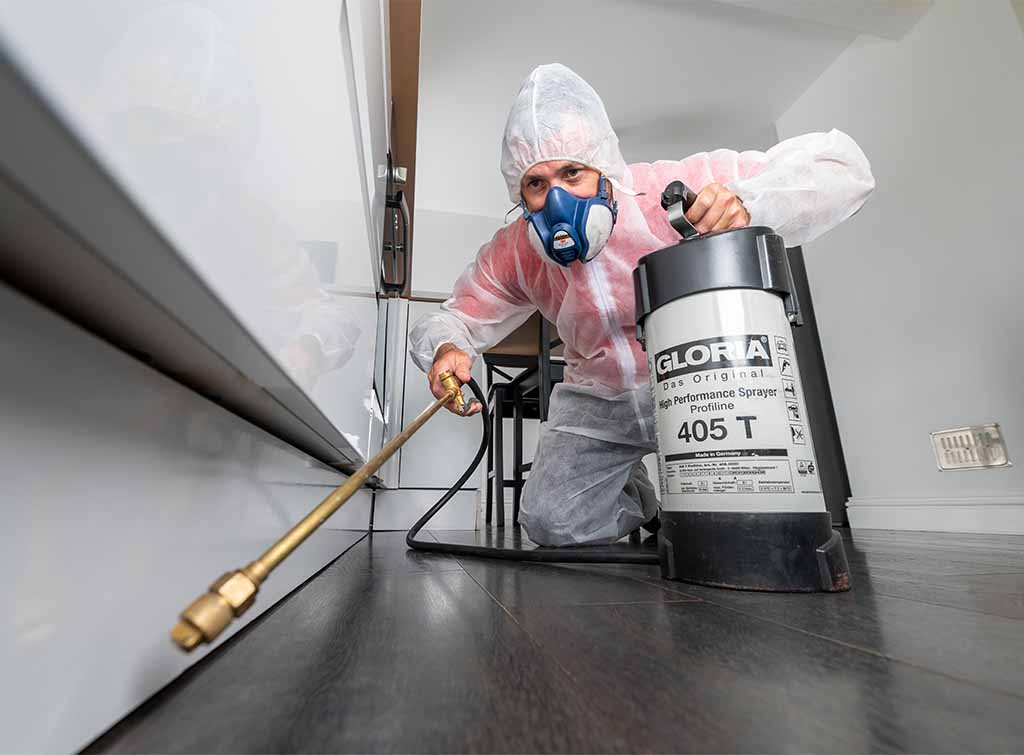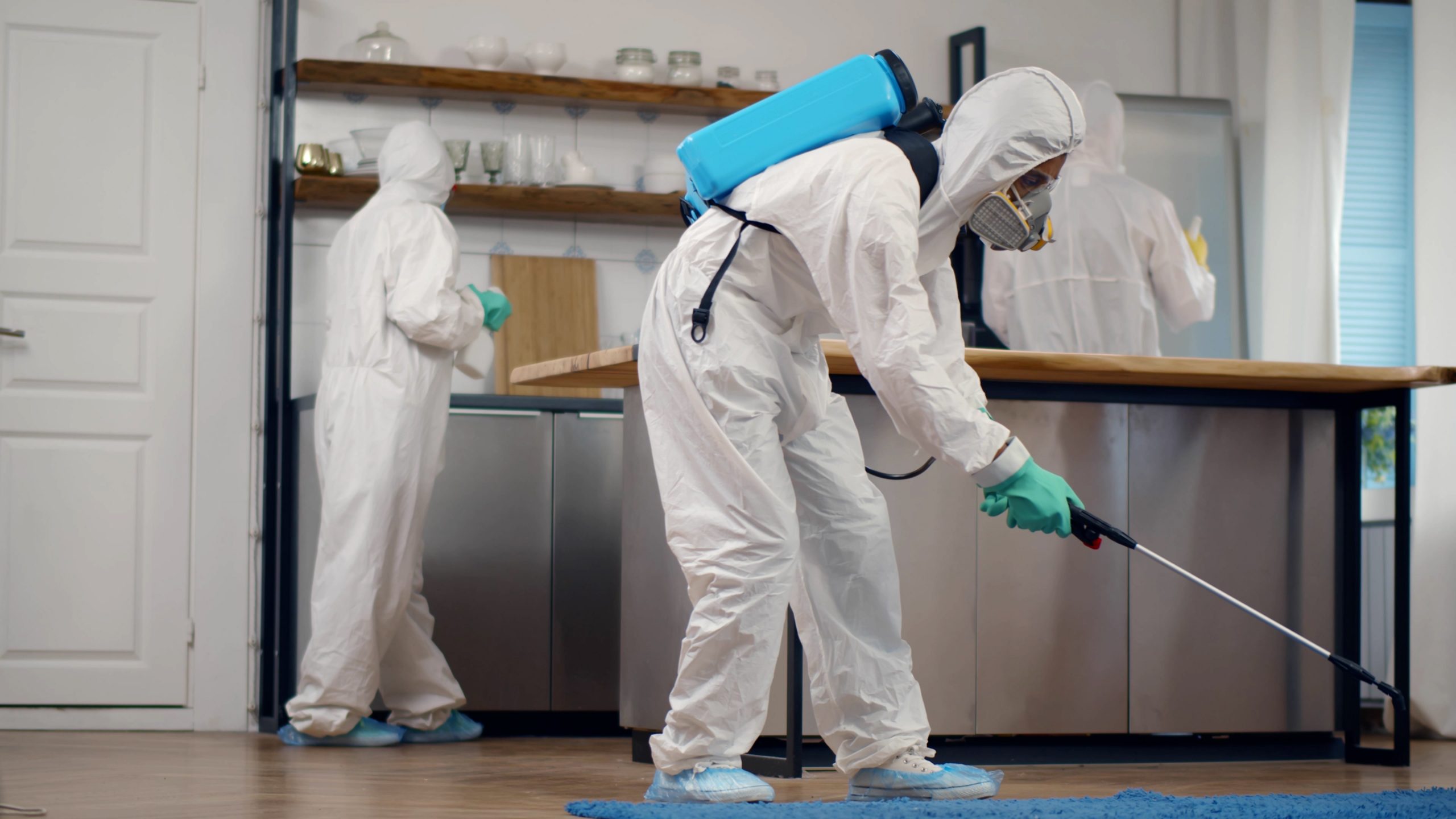Premier Pest Control Clovis: Effective Solutions for Your Home
Premier Pest Control Clovis: Effective Solutions for Your Home
Blog Article
Unveiling the Different Kinds of Pest Control Provider Available
From the precise assessment and evaluation services that lay the foundation for effective parasite management to the application of preventative steps developed to ward off prospective invasions, the area of insect control supplies a spectrum of options tailored to certain requirements. The consolidation of incorporated pest monitoring techniques highlights an all natural and lasting approach to pest control that thinks about ecological impact and lasting efficacy.
Examination and Analysis Services

During the evaluation procedure, educated service technicians use a selection of tools and techniques to gather vital details about the pest infestation. This may include visual examinations, checking tools, and also specific devices like borescopes for accessing hard-to-reach locations. By thoroughly evaluating the findings from the evaluation, pest control specialists can tailor their treatment strategies to properly get rid of the parasites while minimizing environmental effect and making certain the safety and security of residents. Eventually, examination and assessment solutions serve as the structure for successful parasite control treatments.
Preventative Pest Control Measures
Structure upon the fundamental understanding gotten from examination and assessment solutions, carrying out preventative bug control actions is vital for preserving an aggressive method to pest administration. By focusing on avoidance as opposed to response, organizations can significantly lower the risks and prices related to pest invasions. Preventative insect control procedures include a series of approaches targeted at preventing insects from getting in or flourishing in a particular environment. These actions might include routine surveillance, securing access factors, correct waste administration, maintaining tidiness, and executing physical barriers. In addition, using techniques such as organic controls, environment adjustment, and the critical positioning of repellents can further enhance the effectiveness of preventative parasite control initiatives.
Furthermore, educating employees and locals about parasite prevention methods can equip individuals to add to the general success of the pest monitoring program. Eventually, investing in preventative insect control gauges not just safeguards versus prospective infestations but likewise promotes a much healthier and more lasting living or functioning atmosphere.
Organic Bug Control Solutions
Using biological parasite control services involves making use of all-natural organisms or products to take care of and get rid of pest populaces properly. This eco-friendly strategy aims to interfere with the insect's life process without causing damage to the setting or non-target species. One typical method is the introduction of natural predators or parasites that eat the insect types. Ladybugs, as an go to website example, are typically used to regulate aphid populations in gardens. An additional technique entails using microbial insecticides originated from normally happening bacteria, fungis, or viruses. These microbial representatives target particular bugs while leaving useful bugs unscathed.
Organic bug control services offer a sustainable choice to conventional chemical pesticides, minimizing the risk of pesticide resistance and lessening environmental contamination. Effective implementation requires a deep understanding of the parasite's biology and ecology to make certain the performance of the selected biological control representative. Integrating organic control approaches with other parasite monitoring methods can enhance overall parasite control initiatives and promote long-lasting insect reductions in a well balanced ecological community.
Chemical Elimination Treatments
Having reviewed the ecological benefits of biological insect control solutions, the emphasis now moves towards the effectiveness and considerations surrounding chemical elimination treatments in pest monitoring. Chemical elimination therapies include using chemicals to get rid of or regulate bugs such as bugs, rodents, and other undesirable organisms. These treatments are typically efficient in promptly dealing with insect invasions and supplying prompt remedy for pest-related issues.
Each kind of treatment targets certain parasites and areas of problem, ensuring a tailored strategy to pest control. While chemical therapies can be extremely effective, they additionally come with considerations concerning their prospective influence on human health, non-target microorganisms, and the setting.
When considering chemical elimination therapies, speaking with an expert insect control solution is suggested. Parasite control professionals can examine the infestation, suggest one of the most proper treatment options, and continue reading this securely apply chemicals to efficiently manage parasite populaces while reducing dangers to wellness and the atmosphere.

Integrated Bug Monitoring Techniques
Integrated Pest Administration Strategies entail a thorough and tactical technique to pest control that concentrates find more information on lessening pest populaces with a combination of preventative steps, surveillance, and targeted treatments. This approach highlights the significance of understanding the biology and actions of bugs to successfully manage problems while decreasing dangers to human wellness and the setting.
Secret parts of Integrated Parasite Monitoring Techniques consist of routine inspections to determine insect problems early, carrying out cultural practices such as appropriate waste management and hygiene to decrease parasite attractants, and utilizing biological controls like natural predators or pathogens to restrict pest populations. Additionally, mechanical controls such as catches and barriers are utilized to physically remove or deter bugs.
Conclusion
In conclusion, different types of parasite control solutions are available to attend to different bug infestation issues. By recognizing the various alternatives offered, individuals can choose the most efficient technique to regulate bugs in their atmosphere.
Report this page